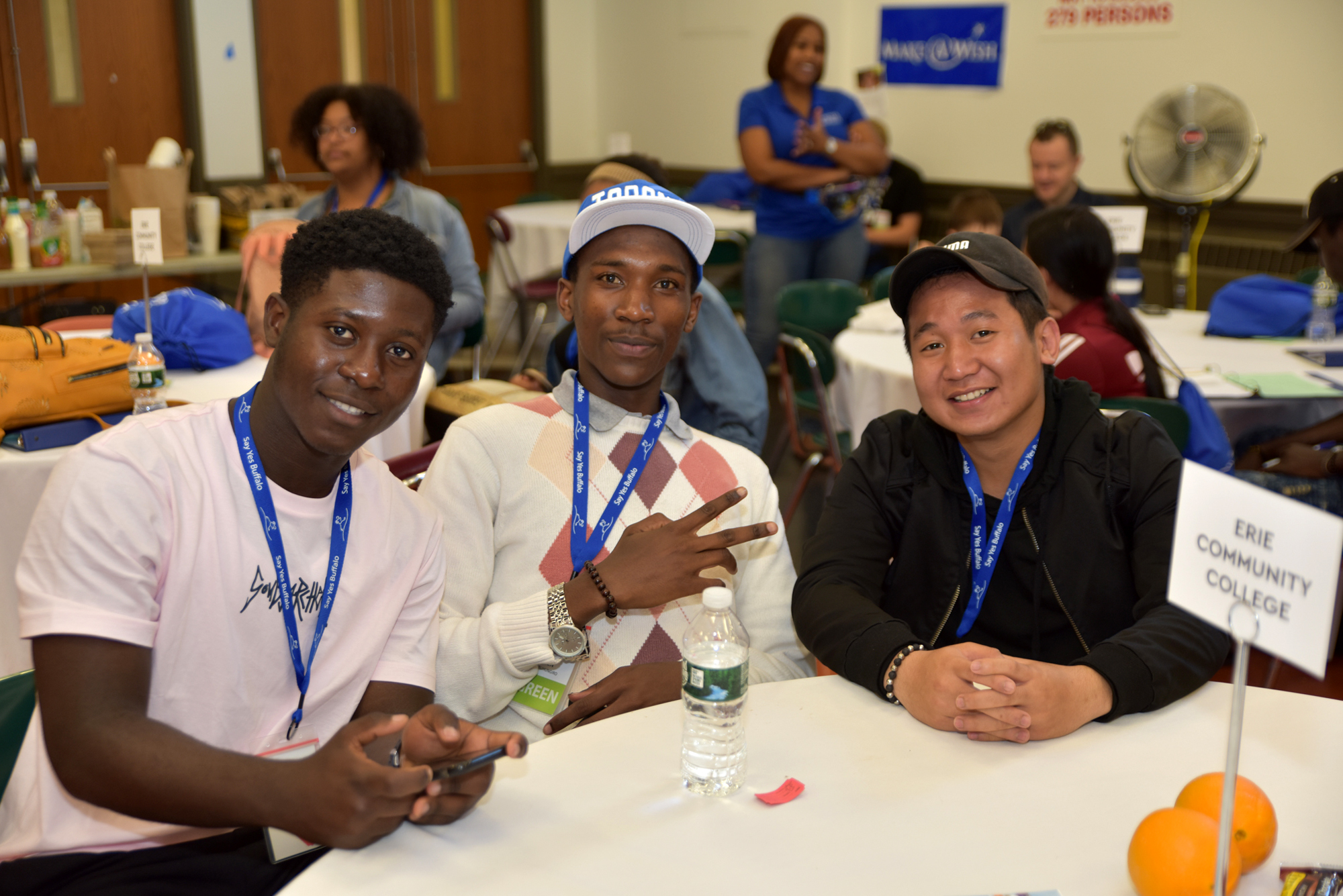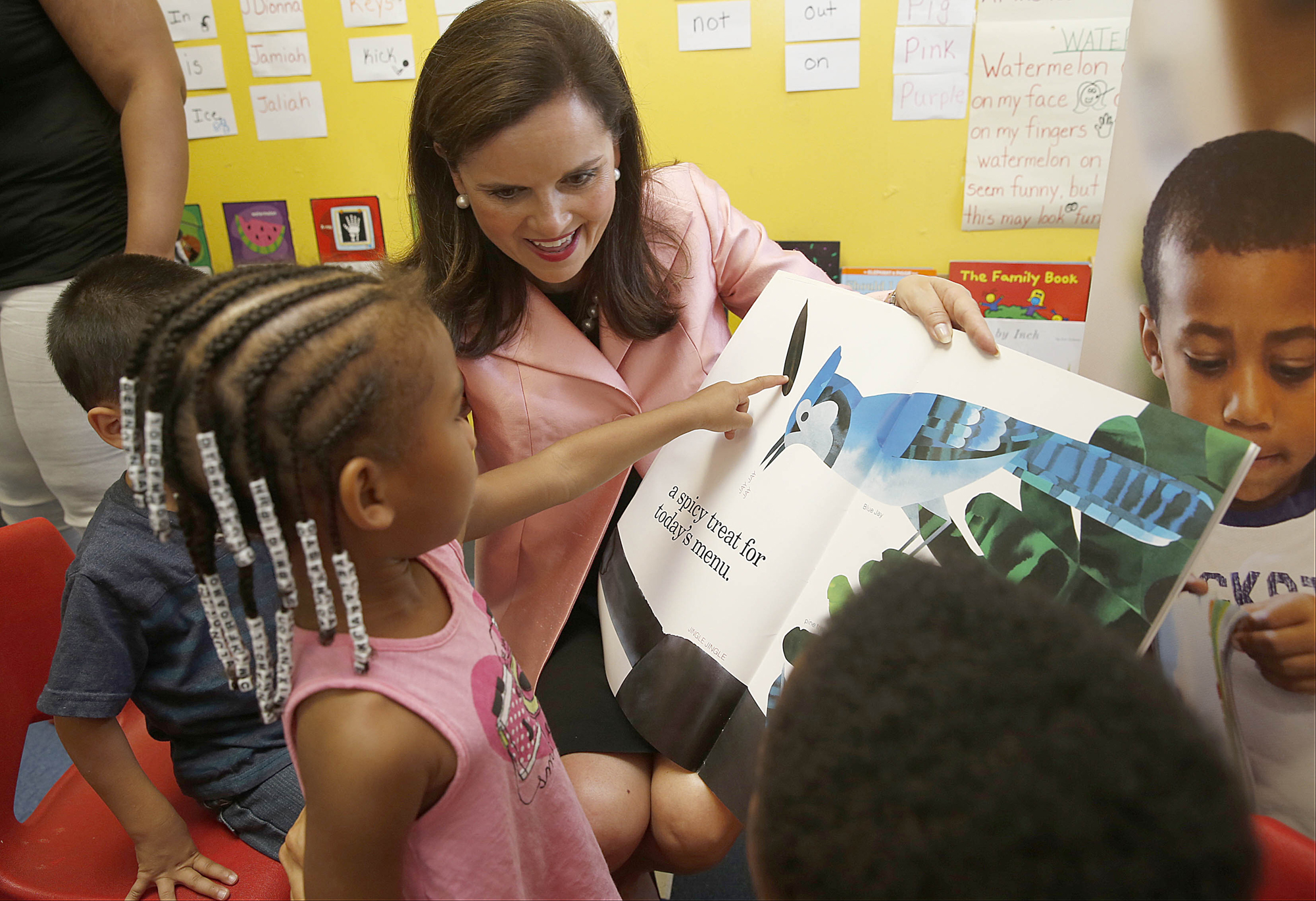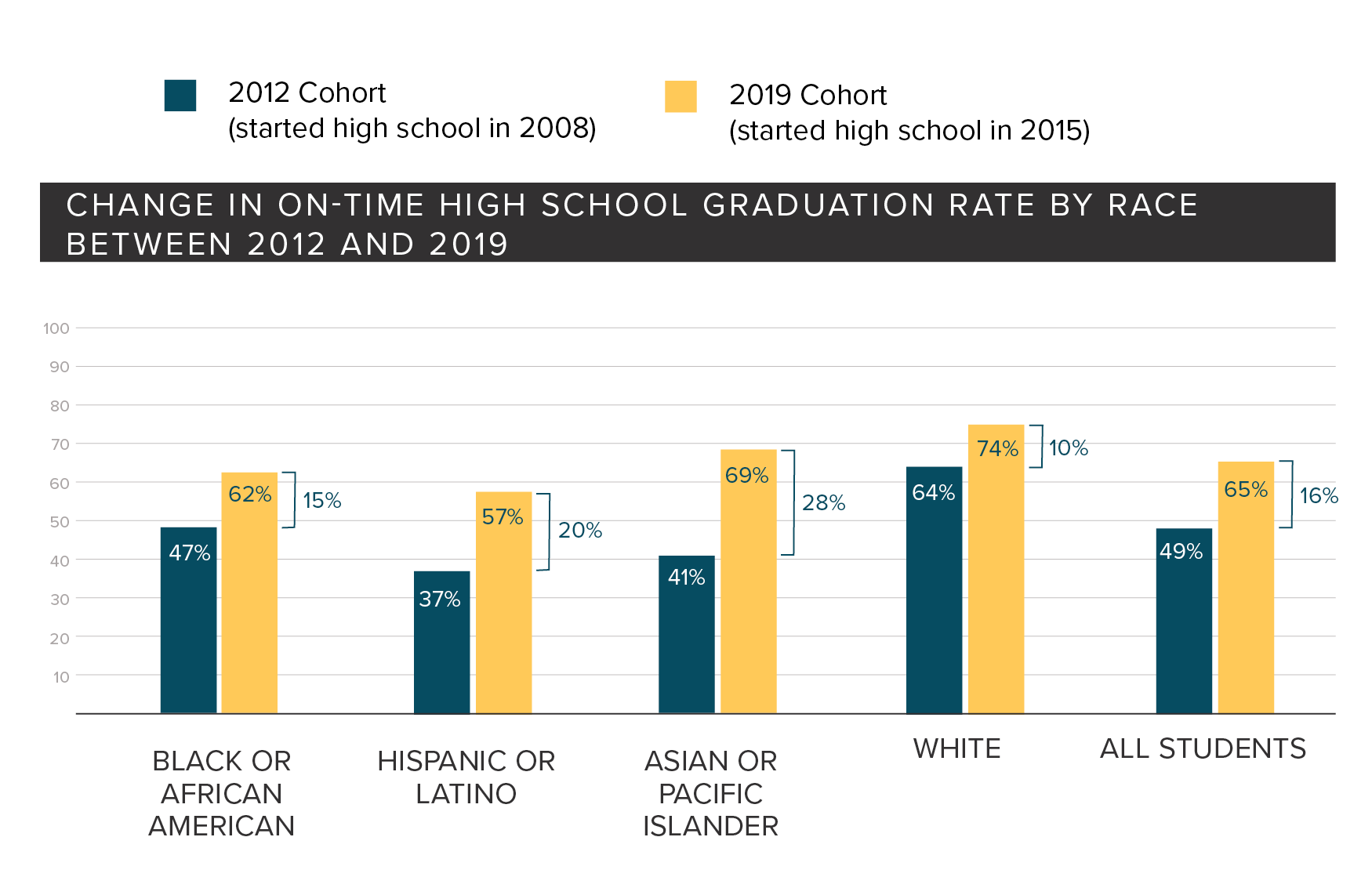BUFFALO

says Temara Cross, a 21-year-old graduate of Buffalo’s Hutchinson Central Technical High School. “That’s one of the reasons we have health disparities.” Now a college senior at SUNY Buffalo, where she takes graduate coursework in public health while completing undergraduate degrees in African American studies and pre-health, Cross says she “hasn’t been the same since” a school-based Say Yes Buffalo family support specialist introduced her to the organization her junior year in high school.
Five years later—after participating in several Say Yes programs—Cross has big plans for her future and the future of her community on Buffalo’s East Side. She is determined to increase her family’s and neighbors’ trust in doctors.
Say Yes Buffalo’s equity-centered broad public goal is that every student in the city completes high school and earns a postsecondary credential. Its mission is to strengthen the Western New York economy by investing in the education of Buffalo’s future workforce. That’s why executive director Dave Rust says the end-goal of the partnership’s effort to advance equity is to ensure Buffalo’s students land living-wage jobs as adults.
What Say Yes did was put together this powerful north star of a universal scholarship for all graduates to a SUNY school and access to 100-plus colleges across the nation. That north star shifts attitudes and outcomes. That is the pull. The push is a system of comprehensive supports focused on removing barriers and providing social emotional learning supports.
Tommy McClam manages Say Yes Buffalo’s Boys and Men of Color Initiative (BMOC), one of ten projects of the Greater Buffalo Racial Equity Roundtable, an effort anchored at the Community Foundation for Greater Buffalo. In 2016, the Roundtable decided that Say Yes Buffalo was the organization best situated to create and host the program.
Say Yes Buffalo fulfills multiple needs, providing money for postsecondary education along with education supports such as mentoring and extended-day programs. It also doesn’t shy away from the fact that children who don’t have their basic needs met aren’t likely to graduate from high school, let alone college.
They are optimistic for how Buffalo’s story will unfold as it addresses historic inequities in the city—in part because its past also includes more charitable instincts than those that led to the city’s profound racial and economic segregation. Community Foundation for Greater Buffalo’s president and CEO, Clotilde Perez-Bode Dedecker, notes that Buffalo “is just a stone’s throw from Seneca Falls,” the birthplace of the women’s rights movement, and was part of the Underground Railroad and a national leader in the movement to abolish slavery.


